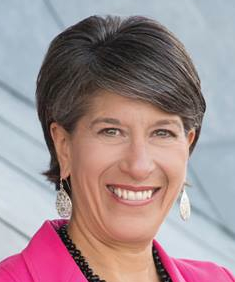Christi and Matt Broom married in 2005, found themselves pregnant shortly after their honeymoon and welcomed their son, Bryan, into the world in November.
"Bryan was perfect," says Christi. "I had a great maternity leave over Thanksgiving and Christmas. I planned to return to work in January. It was Sunday morning. I remember waking up at 4 a.m. to feed Bryan, and then I went back to sleep until 6 a.m. When I woke up at 6, something was clearly wrong. Bryan looked like he was struggling to breathe, so we called 911. When the ambulance arrived, they checked his vital signs and said everything appeared to be normal. We asked to be taken to the hospital anyway."
What followed were days of many questions with few answers. Everything the doctors thought it might be, it wasn't. But one thing was for certain: Bryan was a very sick baby.
"On Monday, a CT scan showed that his brain was swelling, which took them in a totally different direction trying to figure out what was wrong with our son," Christi says. "Although he seemed so sick and fragile, the medical personnel reassured us that babies are resilient. I think everyone thought they would figure this out and we would be taking our baby home soon."
Another CT scan showed Bryan's brain continuing to swell, but no one could figure out why.
"They encouraged me to go home and get a good night of rest," Christi says. "We got home at midnight, and at 3 a.m. they called us back to the hospital. When we got there, they told us Bryan's brain had swollen to the point of death. Sitting in disbelief, Matt and I realized we lost our precious son. Only nine weeks earlier, everything seemed perfect. What just happened? We honestly believed we would be taking our son home in a matter of days. Nobody had any answers. Everything was a blur.
"Somewhere along the way, we spoke with the organ donation people because every organ in Bryan's body except his brain was perfect. We decided to donate his organs."
Christi describes this moment in time as if it were an out-of-body experience. They were just going through the motions. As they walked to their car when leaving the hospital, she realized her husband was carrying a car seat.
"Those next days and weeks were complicated," Christi remembers. "It was like walking into the unknown and having no idea how you are going to make it through the next minute because life as you knew it has been stolen from you. It was a fearful and confusing time. A handful of people shared that this had happened to them and wanted to offer support. I didn't even know how to truly appreciate that at the time. I remember seeing a lady at church who had lost a teenage son years ago. I went up to her, hugged her and said, 'I remember praying for you, but I had no idea it hurt this bad.' I felt like I was in a club nobody wants to be in."
If you are experiencing this pain, Christi shares what she learned from her journey.
"If you are ever going to get to the other side you have to feel the pain - and that's the worst part because nobody wants to hurt that bad. The emotional pain is so very real. You want to push it away, but the only way to heal is to allow yourself to feel your way through the pain. It is super scary because you have no idea how long it will take for it to go away. You think you will never be happy again. You can be happy, but you have to be willing to experience the raw emotion versus trying to stuff it and avoid it.
"Sometimes you just have to let yourself cry," Christi says. "Things would catch me off-guard and the tears would flow. I learned that was really OK and part of the healing process."
Working with a bereavement counselor from Hospice of Chattanooga and someone from the organ donation agency helped the Brooms as well.
Christi also encourages accepting help from others. Let them clean your house, help you pick out what to wear or cook meals for you. Anything you don't have to make a decision about can make it easier.
Through all of this, Matt and Christi grew closer.
"My husband lost his father at a very early age, and his first wife died when their daughter was 2," Christi shares. "Experiencing this helped me understand the pain he had been living with for many years. We leaned on each other a lot. Sometimes we still struggle, but our bond is strong."
Eleven years later, the Brooms have three beautiful daughters, ages 18, 9 and 5. While the pain never completely goes away, they do experience happiness.
"I remember someone putting a book right in front of my face, so close that I couldn't see anything else. They said that in the beginning, you only see what is covering your face, completely obstructing your view. As you begin to move the book away from your face, you begin to see more of your surroundings, more light. The pain is always there and you see it, but it becomes further and further away, and you begin to see more and more of the other parts of your new life, which bring new opportunities. Our life is rich. We enjoy our children and try to take it all in knowing that every day is a gift."
Julie Baumgardner is president and CEO of family advocacy nonprofit First Things First. Contact her at julieb@firstthings.org.

